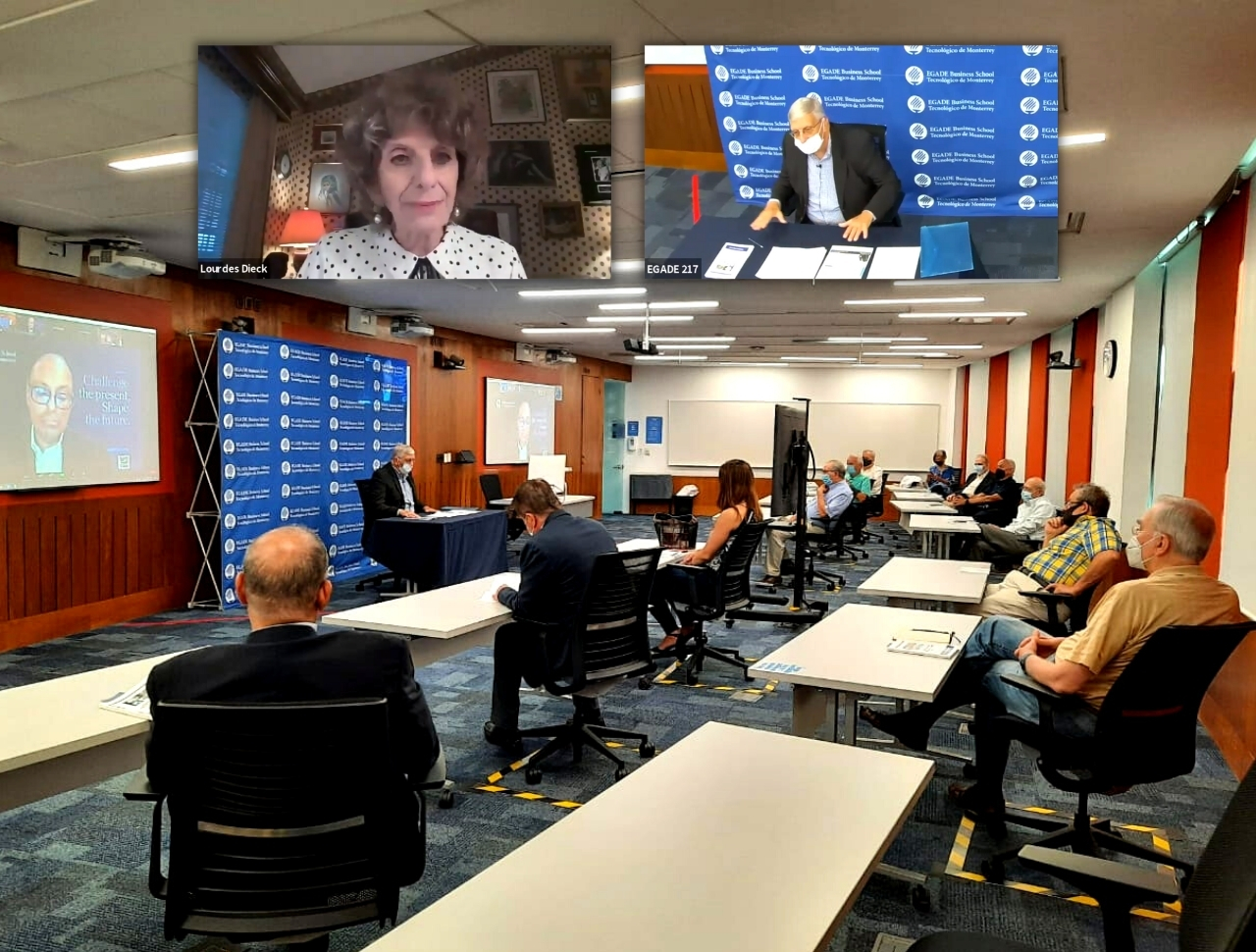María de Lourdes Dieck-Assad, Emeritus Dean of EGADE Business School, accompanied the author and commented on his work remotely.
By INSTITUTIONAL COMMUNICATION | EGADE BUSINESS SCHOOL
With the participation of its author, Carlos Scheel, and the Emeritus Dean of EGADE Business School, María de Lourdes Dieck-Assad, and before an audience who attended in person or virtually, the book Diseño de nuevos negocios de economía circular (Designing new circular-economy businesses) was presented on July 1.
This was the first time a hybrid event was held at the EGADE Business School in Monterrey since the beginning of the suspension of face-to-face activities due to the COVID-19 pandemic.
Scheel, an Emeritus Professor at EGADE Business School, explained that his book seeks to help businesspeople break with the linear business model and create contexts that contribute to producing sustainable wealth.
The researcher and SWIT (Sustainable Wealth creation based on disruptive Innovation and enabling Technologies) group leader presented his comments in Room EG 217 before a limited capacity audience and under strict safety and hygiene protocols.
"You have to innovate disruptively and break with the traditional. For that, you have to offer businessmen and entrepreneurs new innovation tools, promote a systemic vision, redefine value propositions and promote the circular economy," said Scheel.
Additionally, Dieck-Assad, who participated remotely, commented that creating businesses in the new circular economy is not an easy task, but it is pressing to do so because of the great problems that currently threaten the environment and society, and that will worsen in the future.
"You have to create business strategies that are sustainable and economically viable," said the academic.
Also taking part in the presentation were Osmar Zavaleta, Interim Dean of EGADE Business School; Daniel Maranto, Director of EGADE Business School, Monterrey site; and Eduardo Aguiñaga, National Director of the Master in Business Management at EGADE Business School.
In Designing new circular-economy businesses, Scheel describes a methodology drawn from multiple cases and mainly focused on:
- Identifying unusual opportunities
- Analyzing the conditions of a region that are necessary and sufficient to implement circular value systems
- Formulating the transition from a linear to a circular model
- Articulating the dynamics of a circular phenomenon that generates extended added value
- Designing the CEBM (Circular Economy Business Model)
- Building and measuring the advantages of the CEBM
- Formulating a business strategy to generate sustainable advantages that are very difficult for the competition, or linear businesses, to replicate, with the benefit of shared value and aligned with society and the environment.
The book is available on Amazon.
With information from Valentina Flores Cáceres.
